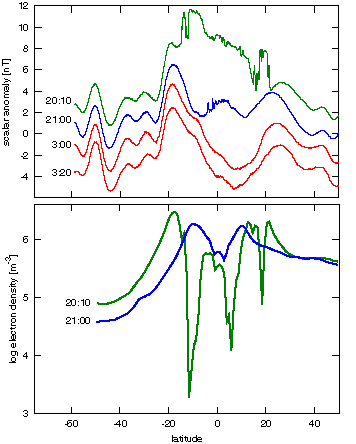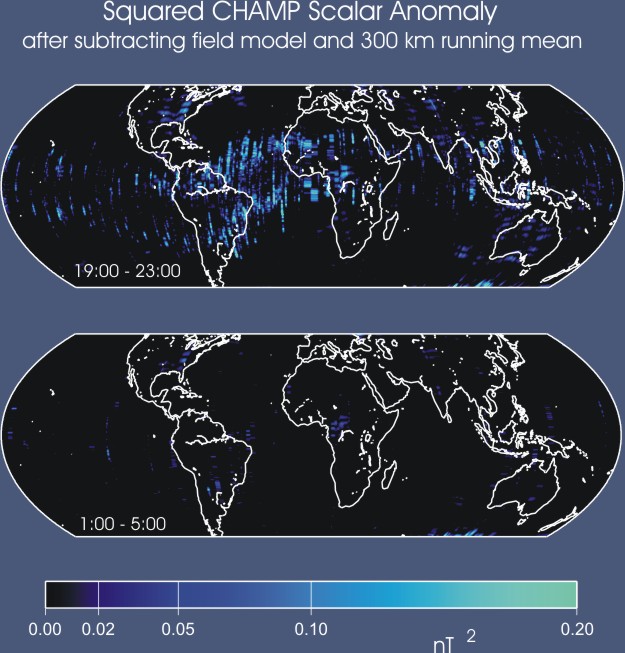| |
Geomagnetism |
|
| Home | Magnetic Field Overview | Model and software downloads | Online Calculators | Magnetic Data Sources | Geomagnetic Tutorials |
|---|
During day-time, the electric field in the equatorial region is predominantly directed eastward. This causes an upward plasma drift. In the evening, when the ionization of the lower ionosphere decreases, this upward drift leads to a setup in which a region of dense plasma is located above a region depleted in plasma. On some days the upper region of dense plasma develops instabilities, also referred to as equatorial plasma bubbles. Irregularities in the plasma density lead to the scattering of radio waves. These scintillations disturb radio communication and the accuracy of GPS receivers.
An analysis of CHAMP data (H.Lühr, S. Maus, M. Rother and D. Cooke) shows that these plasma irregularities are associated with strong small-scale electric currents, which are seen as oscillations in the magnetic field measurements (Figure 1). To a first approximation, the low plasma pressure in the bubbles is compensated by enhanced magnetic field introducing a systematic increase in the magnetic field strength. Simultaneously observed deflections in the perpendicular field components show the existence of field-aligned currents associated with the bubbles.

Figure 1 (top) shows for four repeat tracks sampled at different local times the total intensity of the magnetic
field after subtracting a main and an external (magnetospheric) field model. The two lower trace from post-midnight
reflect the magnetic signature of the lithosphere. The two upper curves from pre-midnight hours exhibit significant
differences in the equatiorial region. Figure 1 (bottom) shows the corresponding electron density profiles as observed
by the on-board Langmuir probe. The Appleton anomaly is clearly visible. In the case of the 20:10 LT event deep density
depletions are observed, indicating the presence of plasma instabilities in this region.

Figure 2 shows the global distribution of the short-wavelength magnetic signatures of the currents for
pre- and post-midnight time intervals. The time of occurrence, as well as the latitudinal confinement,
argues for a source mechanism driven by plasma instabilities associated with the Appleton anomaly.
| Plasma Bubble Downloads | ||||||
|---|---|---|---|---|---|---|
| Format | Mbyte | Date | Contents | |||
|
|
2.83 | 2005 | Presentation at C/NOFS Workshop, Estes Park, 2005 | |||